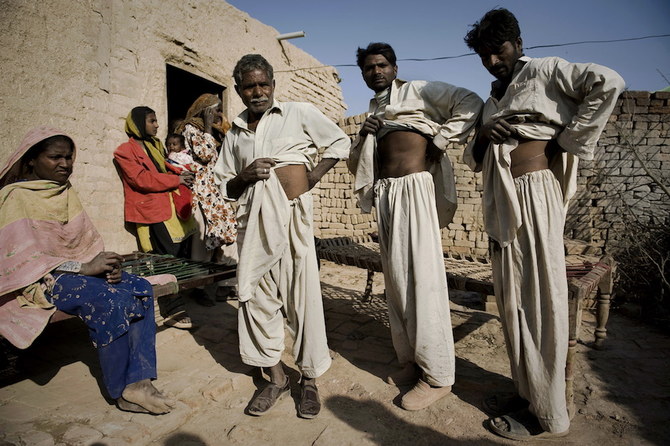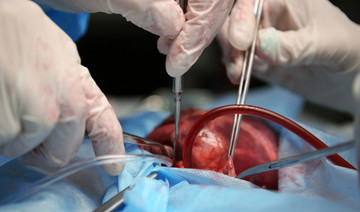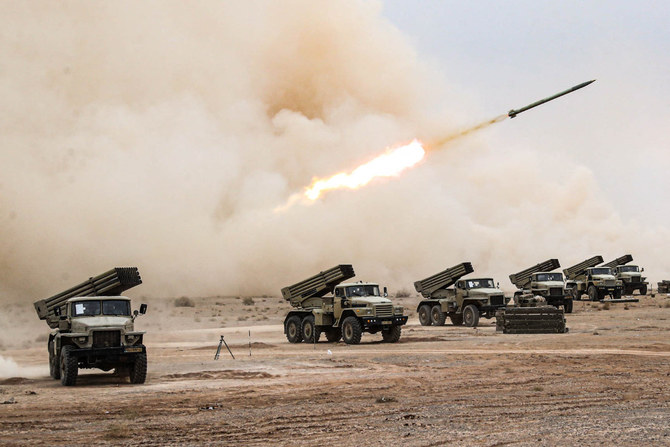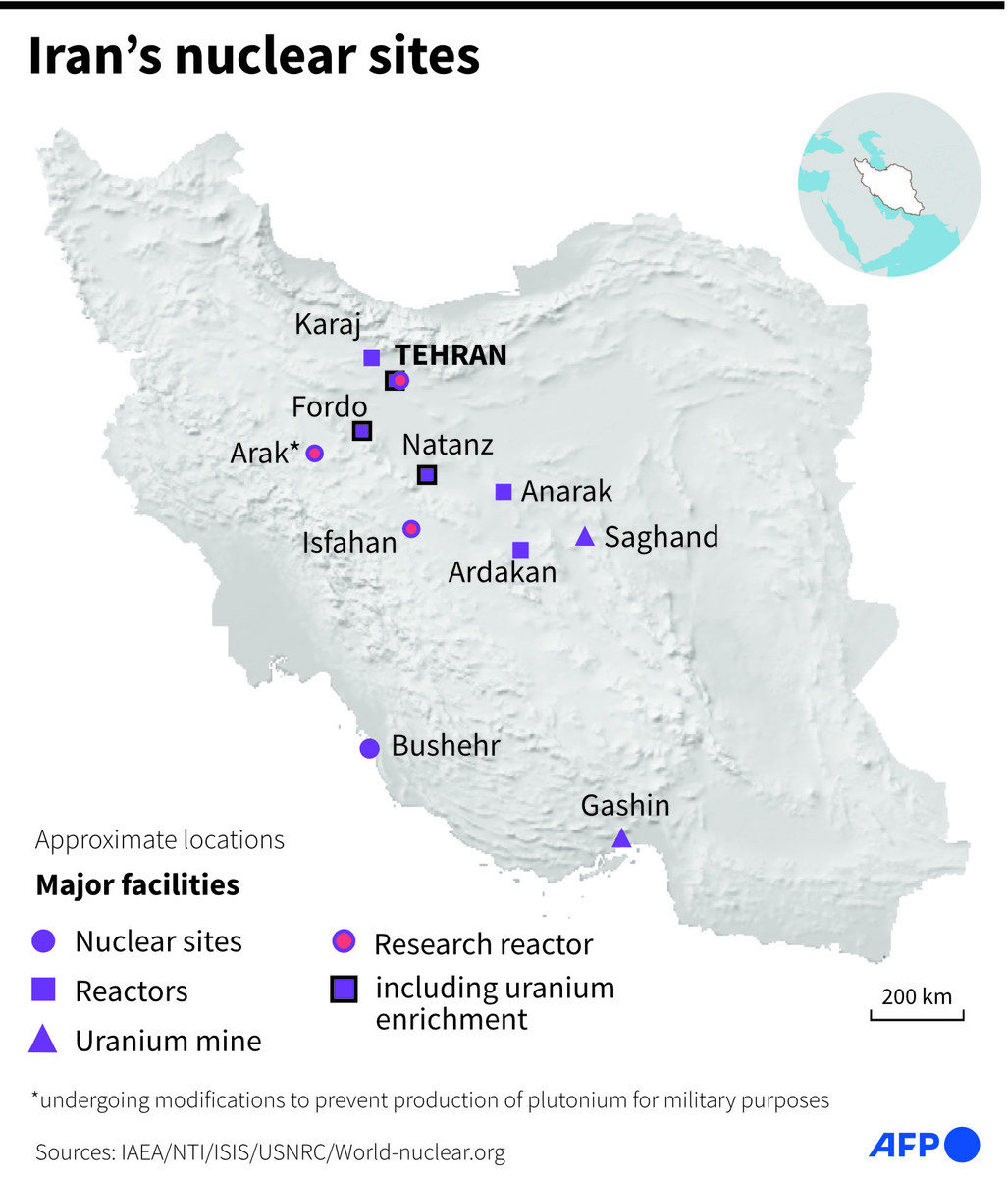ABU DHABI: From Libya in the west to Yemen in the east, as conflicts wrack parts of the Middle East and North Africa, the growing population of the displaced and dispossessed are proving easy prey for traffickers in human body parts.
More than 5 million refugees in the Middle East are potential targets for this illicit trade.
Known as the “red market,” the global human organ trade generated between $600 million and $1.2 billion annually before the coronavirus disease (COVID-19) pandemic hit, according to Global Financial Integrity, a Washington-based think tank that produces analyses of illegal financial flows.
Refugees are the most vulnerable to organ trafficking as they are likely to battle hunger, poor living conditions and a deeply uncertain future owing to displacement.
This mixture of adversities makes many of them desperate to seek a way out of their predicament, even if it means selling their organs to provide for their families or fund their passage to more stable regions in the world.
Agents of traffickers are usually quick to spot this vulnerability and are known to even resort to coercing potential donors should they try to change their mind.
What has not proved a deterrent are the usual practices of traffickers: false promises of a safe journey to Europe; paltry payments to donors after organ removal; lack of proper medical facilities for organ extraction; and the absence of information on the risks and post-operative precautions.
Judging by the numbers, refugees and migrants continue to be lured by barter deals that promise a ticket to freedom and a bright future.
The International Organization for Migration (IOM), headquartered in Switzerland, reported its suspicions of organ trafficking in Syria as early as 2015, stating that this also included related operations in the neighboring countries.
The protracted conflict in Syria has turned a refugee population of more than 2 million people into easy prey for sex trafficking, organ harvesting and forced labor, particularly in Turkey and Lebanon, which, along with Egypt and Libya, are among the region’s red market hotspots.
FASTFACT
Organ trade
The annual illegal global trade in human organs before COVID-19 stood at $600 million - $1.2 billion.
With the exception of Libya, these countries have strict laws prohibiting organ donation to non-family members.
According to emerging research, organ traffickers in Lebanon have begun to target refugee camps, where many residents are minors.
In an interview in early 2019, Nuna Matar, director of Triumphant Mercy Lebanon, an entity that works for the poor and displaced, said: “It was horrifying to hear that traffickers preyed on children, but it was not labor or sex trafficking. It was organ trafficking.”
Libya has been flagged as a country of particular concern for the red market as many of the refugees who fled due to the intensifying violence there were repatriated and placed in detention camps. The war-torn country is a hub for refugees from sub-Saharan Africa and the Horn of Africa seeking a route to Europe.
“There is hardly any data on organ trafficking in Europe,” Suzanne Hoff, international coordinator of La Strada International, a leading European platform against trafficking in human beings, told Arab News.
“While there is increasingly more attention for the vulnerability of refugees and migrants for human trafficking, adequate screening and identification generally lags behind. Moreover, most focus of attention remains on trafficking for sexual exploitation, which is probably also why organ trafficking is hardly identified.”
A 2018 report by the Office of the United Nations High Commissioner for Human Rights said that due to a law that criminalizes illegal migration and a lack of protections for trafficked victims, returning migrants and refugees have been reluctant to report abuse to Libyan authorities, perpetuating a vicious circle.
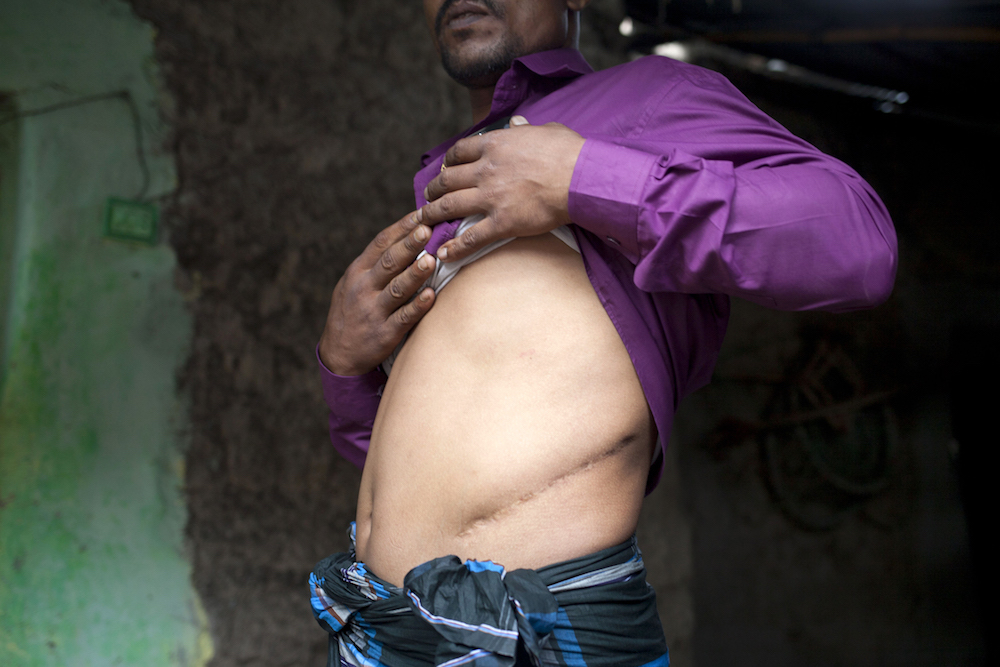
In this photograph taken on August 1, 2015, Bangladeshi villager Belal Hossian, 35, a victim of illegal organ trade, shows the scars from his illegal kidney removal operation in the village of Kalai some 300 kms (185 miles) northwest of Dhaka. (AFP)
The stories of refugees and migrants proving easy targets for traders of the red market in Libya are repeated in neighboring Egypt.
A 2019 study on the organ trade in Cairo shed light on the main drivers: legal marginalization and social exclusion of refugees and migrants. A Sudanese migrant put it this way: “If you cannot find work when you get to Egypt, you will not find mercy. This is why people sell their kidneys.”
The going rate for human organs in the Arab region is substantial. In Iraq, illegally obtained organs can sell for $20,000 apiece, while in Turkey a sale can be sealed for up to $145,000, according to reports.
In Yemen, which is not a signatory to the Protocol to Prevent, Suppress and Punish Trafficking in Persons, Especially Women and Children (which is a part of the UN Convention against Transnational Organized Crime), it has been difficult to obtain information on human trafficking since 2015 due to the conflict.
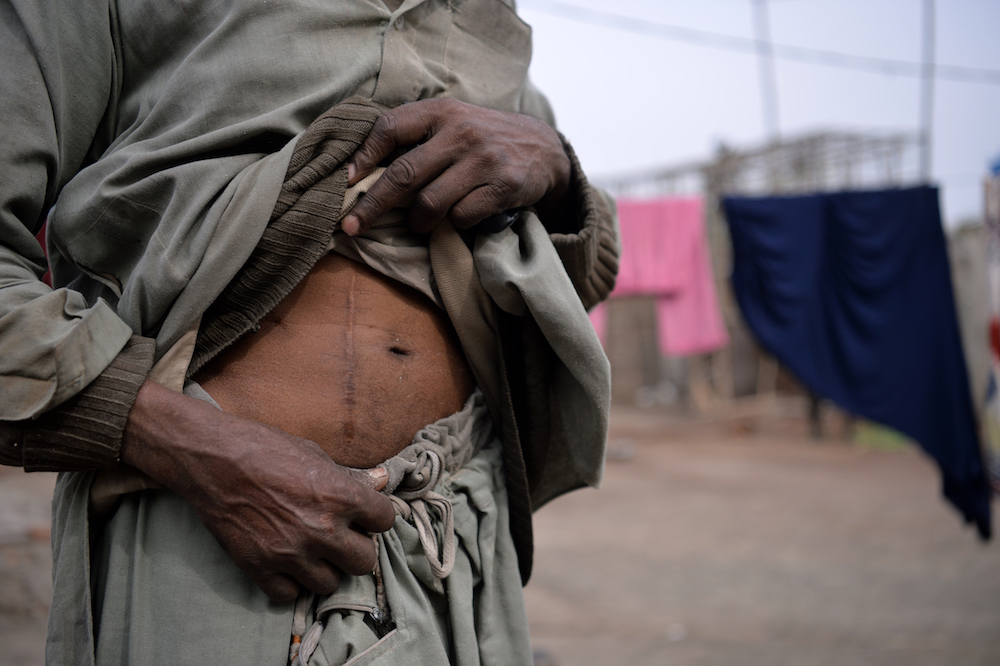
In this photograph taken on February 2, 2017, Maqsood Ahmed, who sold one of his kidneys, displays a scar in Bhalwal in Sargodha District, in Pakistan's Punjab Province. (AFP/File Photo)
Nongovernmental organizations (NGOs) point to Yemen’s protracted conflicts, general lawlessness and deteriorating economic conditions as factors that place the population at risk of being trafficked, including for organ harvesting.
What makes the illicit organ trade especially shocking is the meager gain for a typical donor. According to the UN Office of Drugs and Crime, the majority of organ donors, including migrants and refugees, do not end up improving their economic prospects.
On the contrary, as studies reveal, most victims are not adequately compensated — if they are compensated at all. Should they suffer from post-donation medical complications, their plight becomes infinitely worse.
None of this is to say the racket in human organs is a lost battle. Globally, many governments are combating the red market with the full force of the law.
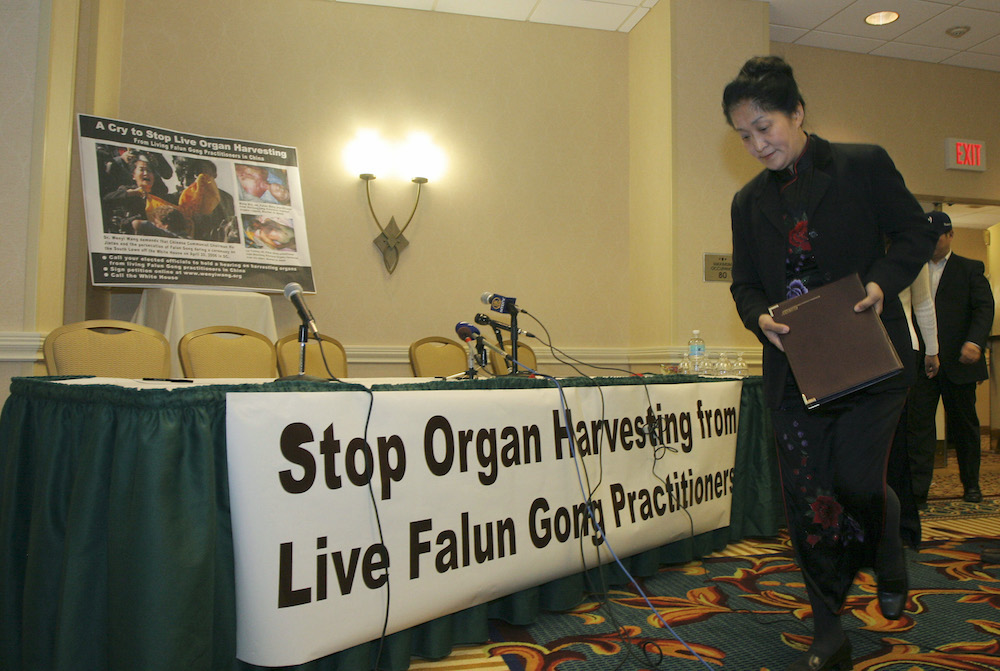
Chinese doctor Wang Wenyi arrives to give a press conference in Arlington, Virginia about alleged organ harvesting by Chinese authorities on Falun Gong practitioners. (AFP/File Photo)
In the region, Bahrain is the only country to have reached the US State Department’s Tier 1 category status in the Trafficking in Persons report 2019. This means the Bahrain government has made efforts in consistently combating all forms of trafficking through laws, victim identification measures, partnerships with NGOs, and preventive measures.
“We need to move beyond a shallow analysis of the situation in order to understand what factors contribute to trafficking,” Mohammed El-Zarkani, IOM Chief of Mission in the Kingdom of Bahrain, told Arab News.
“Within a conflict situation, there is an obvious vacuum of law and order. Traffickers capitalize on chaos, including health crises, such as the COVID-19 pandemic. Those most vulnerable to trafficking are those without legal protection.”
El-Zarkani said Bahrain has established the Regional Center for Excellence against Human Trafficking with the express goal of tackling trafficking at the local and regional levels.
“As first of its kind, the center aims to develop curricula for training government entities, private sector representatives, the general public, civil society associations, international and regional organizations, healthcare professionals and educators, in order to elevate the collective Gulf efforts against trafficking,” he told Arab News.
Looking to the future, El-Zarkani said: “Even though organ trafficking is not an immediate concern in the Gulf region, with the exception of the situation in conflict zones, developing training curricula that are specific to the region will be key in the overall holistic efforts of Gulf governments to combat all types of exploitation under human trafficking.”
---------------------



